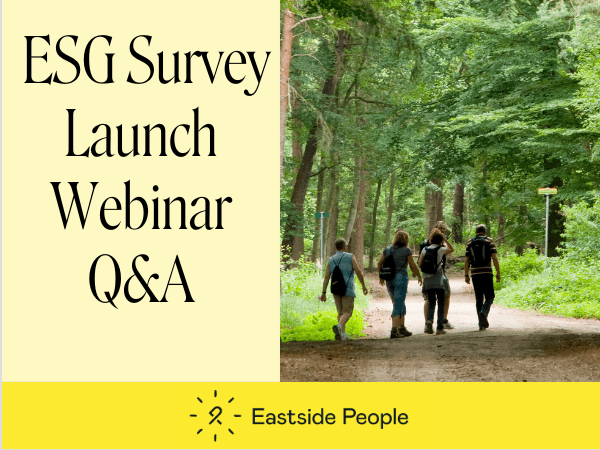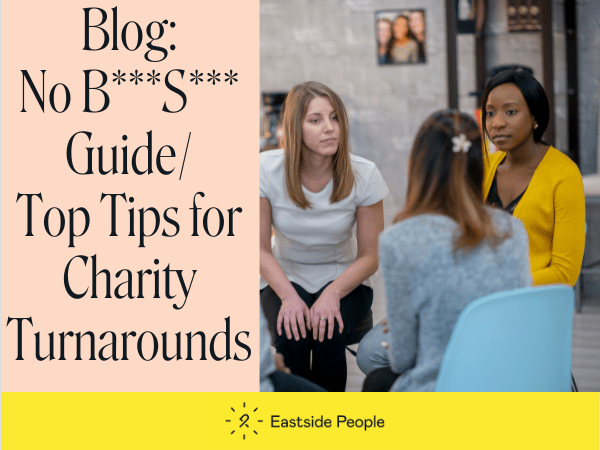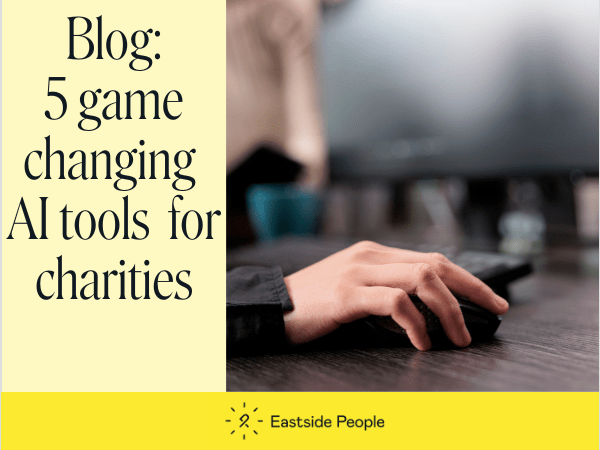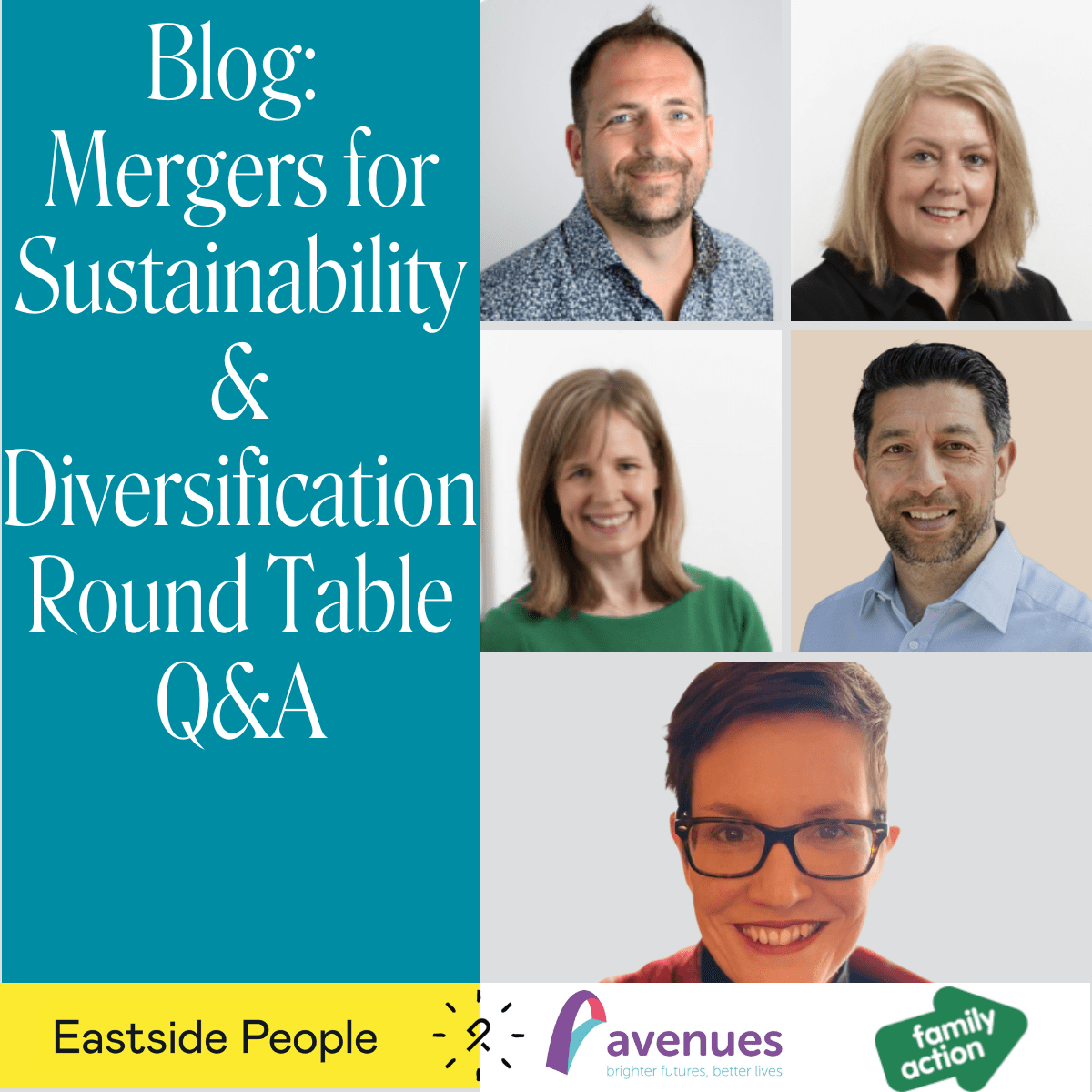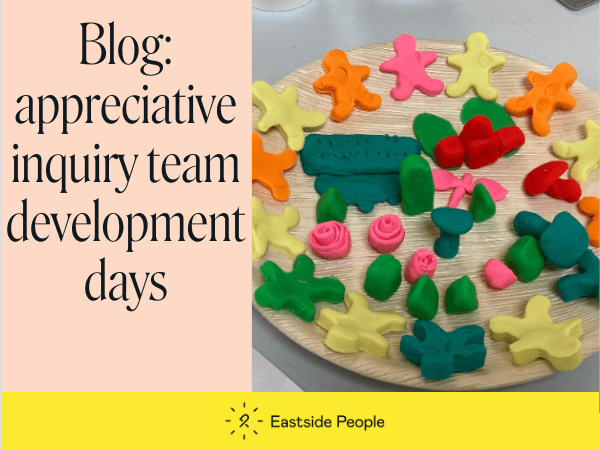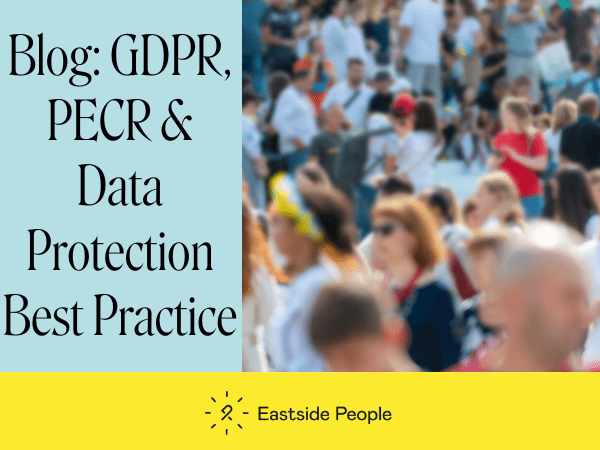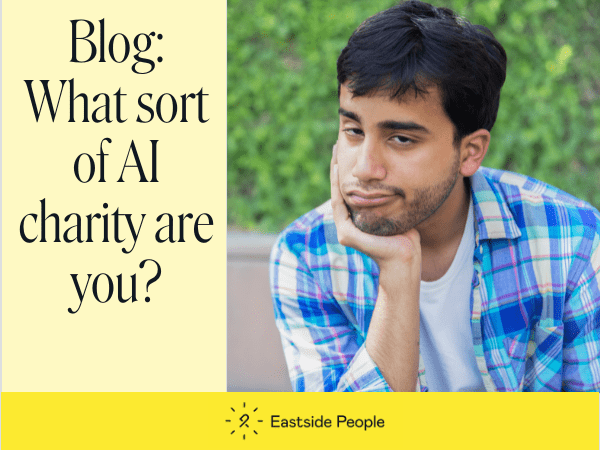Blog by Eastside People Consultant Chris Dadd.
This blog details how to select accessible software for neurodiversity & accessibility to create a more supportive environment & enhance communications and details the top 6 software tools available.
Neurodiversity in Charity Volunteering: Introduction
Neurodiversity refers to the natural variations in human brain function that affect how individuals think, learn, and process information.
Understanding neurodiversity is essential when creating inclusive volunteering opportunities, especially within charity teams. Charities can empower neurodivergent volunteers to leverage their unique perspectives and strengths through thoughtful recruitment, training, and access to appropriate tools. This inclusivity leads to better team dynamics, wider talent pools, and improved charity outcomes. In fact, many charities are beginning to realize that embracing neurodiversity provides them with diverse, innovative problem-solvers who can significantly contribute to their missions.
The National Autistic Society (NAS) in the UK runs the “Be a Volunteer” program, which actively encourages neurodivergent individuals to contribute their time and skills. By focusing on strengths such as attention to detail, the charity ensures these volunteers can thrive in various roles. They offer customized training and resources, making volunteering accessible to all. This program demonstrates how charities can maximize volunteer potential by embracing neurodiversity.
How common is Neurodiversity in the UK?
In the UK, approximately 13 million people are neurodivergent, encompassing a range of conditions:
- Dyslexia (affects reading, writing, and spelling) – 10% of the population (~6.5 million people)
- Dyspraxia (DCD – Developmental Coordination Disorder affects physical coordination and motor skills) – 5% (~3.3 million people)
- Autism (A spectrum of developmental disorders affecting social interaction, communication, and behaviour) – 1.1% (~700,000 people)
- ADHD (inattention, hyperactivity, and impulsivity) – 3-4% (~2-2.6 million people)
- Dyscalculia (affects mathematical skills) – 3-6% (~2-3.9 million people)
- Tourette’s Syndrome (causing repetitive, involuntary movements and vocalizations, tics) – 1% (~650,000 people).
Key Tech Solutions for Neurodiverse Volunteer Teams
The right software can create a more supportive environment and ease communication difficulties, support task management, and provide an inclusive platform for creativity and collaboration. By exploring specific tools tailored to different neurodiversity needs, you can enhance volunteer productivity, reduce anxiety, and enable volunteers to focus on contributing, rather than overcoming barriers.
The following tools address specific needs within neurodiverse volunteer teams, from reading assistance to task organisation and collaboration:
1. Reading and Writing Assistance: Texthelp Read&Write
Texthelp Read&Write provides text-to-speech, word prediction, and grammar assistance for reading and writing support. Helps volunteers with dyslexia and ADHD read content, draft emails, and fill in forms without struggling with spelling and structure.
Texthelp Read&Write Real-World Example
The Reading Agency is a charity that has integrated technology to support neurodiverse individuals, particularly dyslexic volunteers. By using text-to-speech programs like Texthelp Read&Write, the charity makes reading and comprehension tasks accessible to everyone, irrespective of dyslexia. Volunteers feel more empowered and efficient after using tools like this.
2. Note-taking & Transcription: Otter.ai
Otter.ai automatically transcribes live or recorded meetings for easier review and note-taking assistance. Ensures volunteers don’t struggle with keeping up in discussions and can review key points later.
- Best for: Dyslexia, ADHD, Dyspraxia, Autism
- Pricing: Free plan with 300 minutes/month, or $8.33/month for Pro
- Signup: Try Otter.ai.
Otter.ai Real-World Example
The British Heart Foundation (BHF) uses Otter.ai for internal meetings, making it easier for volunteers with dyslexia or ADHD to capture and review key points. This transcription service ensures that volunteers are never left behind during fast-paced discussions, allowing them to keep up with vital information even if they missed something live. Freeing their mind to contribute instead.
3. Task & Visual Collaboration: Miro
Miro is a visual collaboration tool that allows teams to brainstorm, plan, and manage projects using mind maps and sticky notes. Supports volunteers who process visually rather than textually, allowing for flexible thinking styles.
Miro Real-World Example
Miro has become essential to the volunteer coordination efforts at Mind, a mental health charity. Volunteers across the UK can participate in brainstorming sessions or track long-term projects via visual mind maps and sticky notes, helping them work with greater efficiency. Miro’s ability to cater to volunteers who thrive on visual input instead of linear tasks is one of the key ways Mind has made its work environment more inclusive.
- Best for: Dyslexia, Dyspraxia, ADHD, Autism
- Pricing: Free for small teams; paid plans from $8/month
- Signup & Video: Try Miro | Watch introduction.
4. Screen Reading & Magnification: ZoomText
ZoomText offers screen magnification, contrast adjustments, and text-to-speech. Supports volunteers who struggle with small text or need high contrast for better readability.
- Best for: Dyslexia, Visual Impairments
- Pricing: From $880 (one-time license).
- Signup & Video: Try ZoomText.
ZoomText Real-World Example
The Royal National Institute of Blind People (RNIB) provides volunteers with visual impairments access to ZoomText. The charity makes an extra effort to ensure these volunteers can read essential documents, browse the web, and collaborate seamlessly on digital platforms with text-to-speech and magnification tools. Thanks to this tech, volunteers who were previously unsure about how they could participate are now able to confidently work on multiple projects for the RNIB.
Advanced Screen Reader: JAWS
JAWS converts on-screen content to speech or Braille output. Enables visually impaired volunteers to navigate digital platforms independently.
JAWS Real-World Example
The Guide Dogs for the Blind Association enables volunteers with sight loss to play an integral role in their work. By utilizing JAWS software, these volunteers are empowered to navigate documents, emails, and software independently. JAWS helps them break down barriers typically associated with volunteering roles that require digital interaction. This inclusion ensures that visually impaired volunteers have equal access to key tasks, allowing them to remain just as productive as other members of the team.
- Best for: Dyslexia, Blind & Visually Impaired Volunteers
- Pricing: Starts at $1,625/year for 3 PCs
- Signup & Video: Try JAWS.
6. Forms & Questionnaires: Typeform
Typeform creates engaging, accessible forms with a conversational design, reducing text-heavy overwhelm. Helps volunteers who find traditional forms cognitively demanding by offering a step-by-step guided format.
- Best for: Autism, ADHD, Dyspraxia
- Pricing: Free for up to 10 forms/month, paid plans start at £21/month (Check pricing).
- Signup & Video: Try Typeform.
Typeform Real-World Example
The Cancer Research UK charity uses Typeform to create visually engaging, accessible forms for event registration and donor surveys. The platform’s conversational design allows volunteers with ADHD or autism to participate without feeling overwhelmed. The step-by-step process takes the strain out of complex forms, ensuring volunteers can focus on supporting the charity’s mission without cognitive fatigue or frustration.
Summary Table of Software Solutions for Accesibility and Neurodiversity
This table gives a quick summary of the most appropriate fit of software to ND condition.
✅ = Well-suited
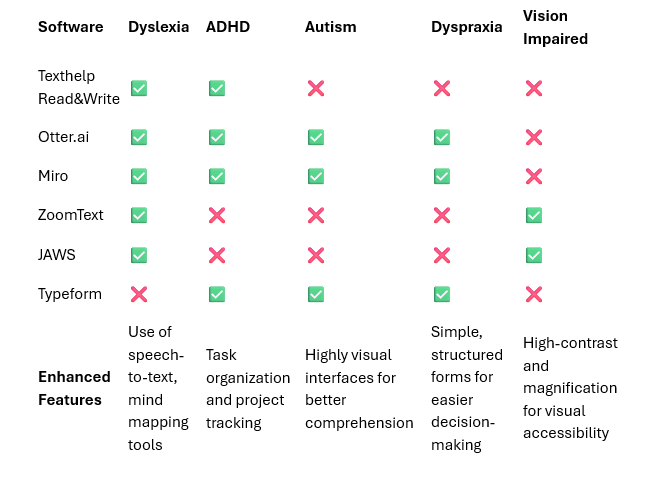
Final Thoughts: Making Tech Work for Your Charity Team
Choosing the right technology for neurodiverse volunteers can significantly enhance participation, productivity, and engagement by creating an environment where all members can contribute, regardless of their neurological makeup. Charities should not only select tools that reduce cognitive barriers and encourage independent task completion but also provide training to ensure their teams make the most of these solutions.
By actively seeking software that offers discounts for non-profits, charities can ensure the tools are affordable and accessible, making it possible to implement technology that helps marginalized volunteers thrive. In doing so, charity teams can tap into the full potential of their volunteers, fostering a more inclusive and dynamic work environment for everyone.
Find out more about Eastside People’s Consultancy Services or get in touch today.




